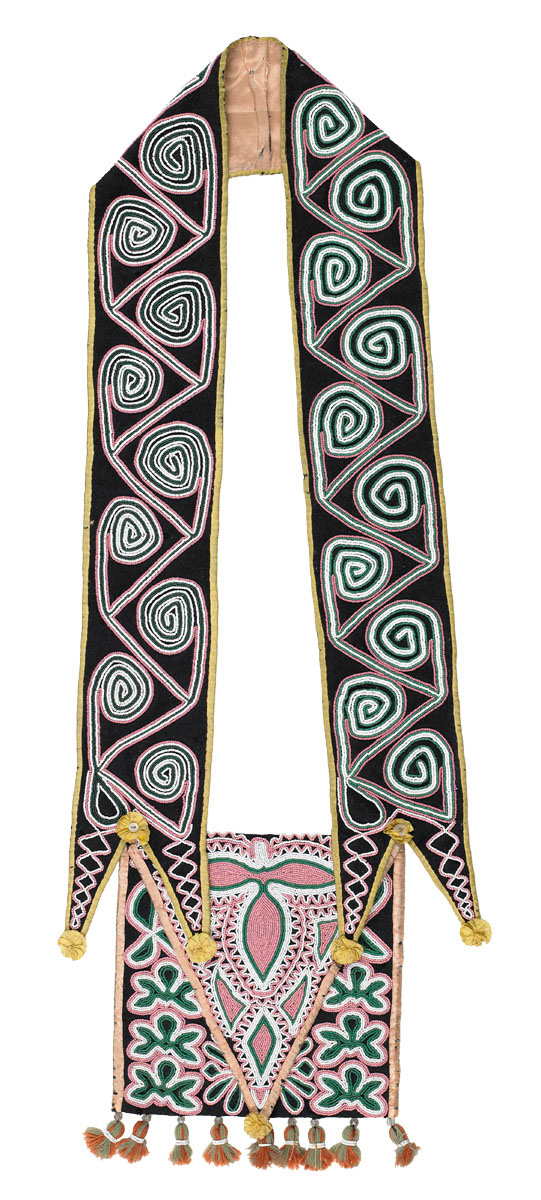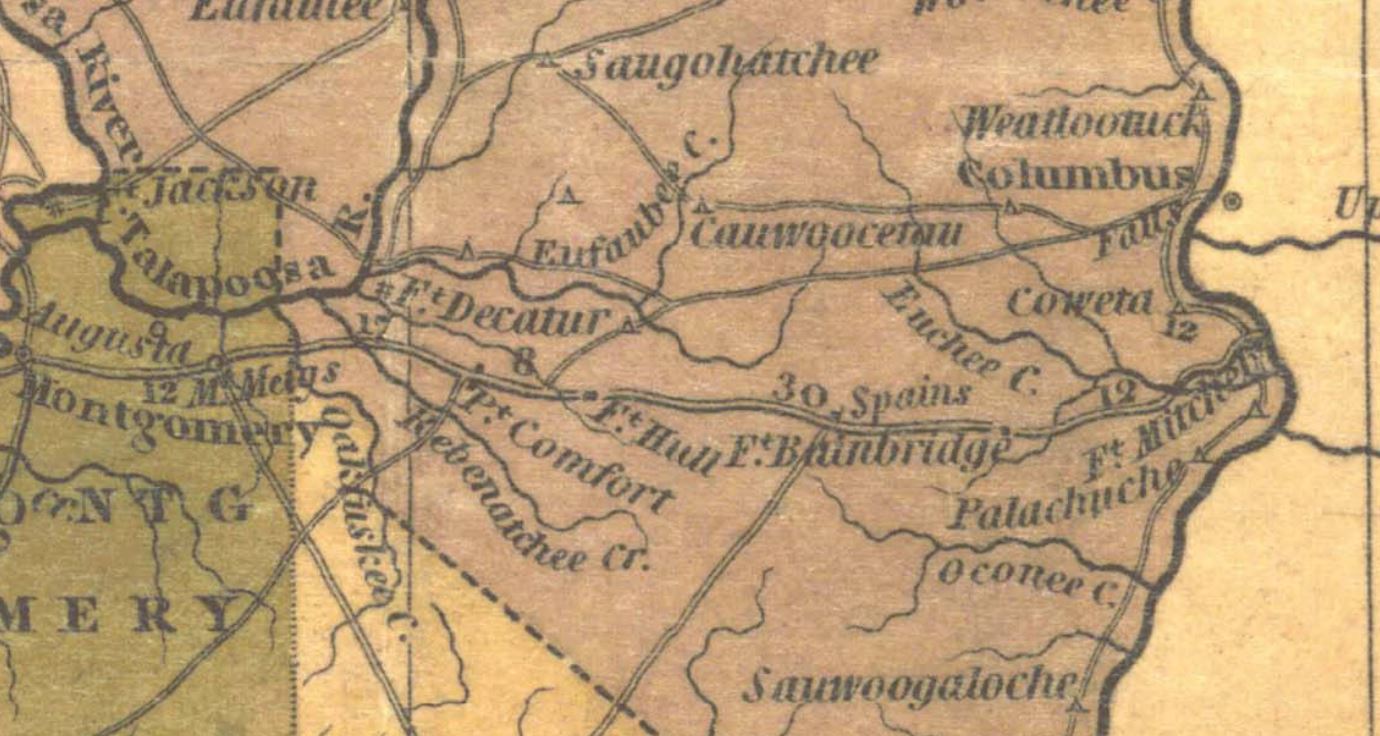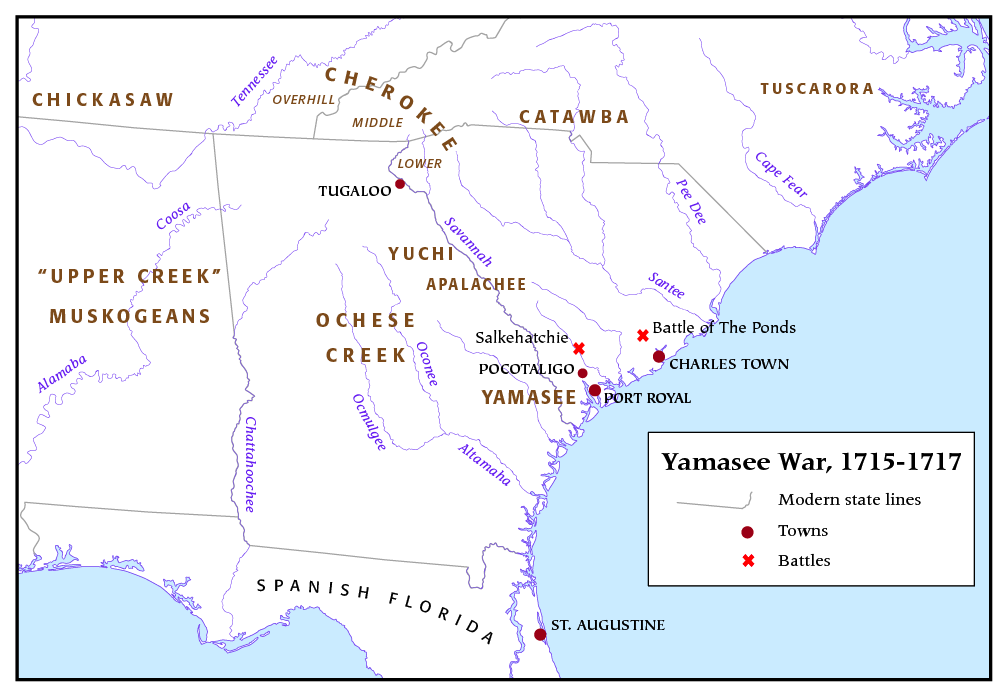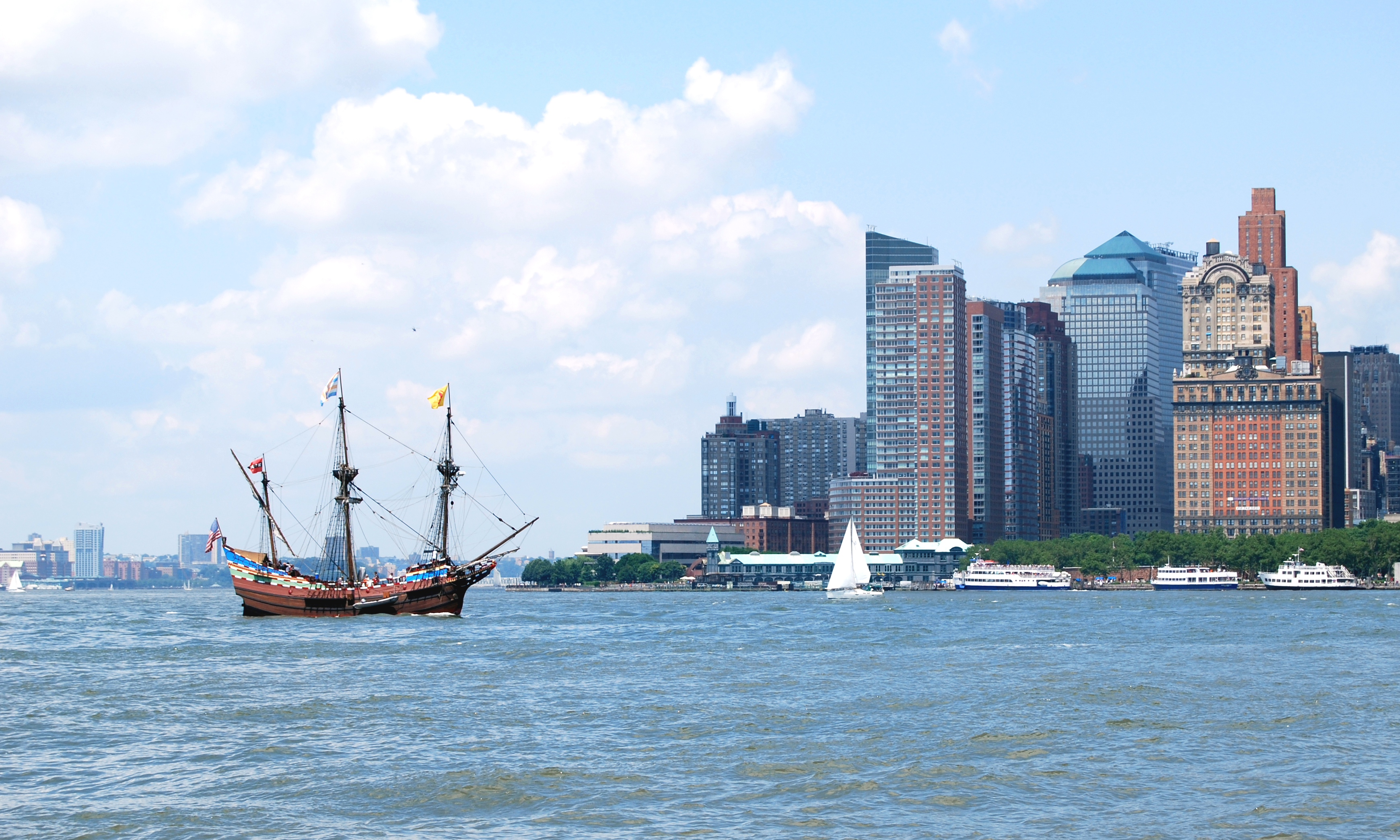|
Emperor Brim
Emperor Brim, also known as Hoboyetly, (died 1733) was a Muscogee ''mico,'' or ruler, of Coweta who rose to power through a series of shifting alliances with France, England, and Spain. His two sons, Hollata Brim and Seepeycoffee Brim, both later served as leading Cowetas, but it was Malatchi Brim, a maternal relation of Emperor Brim (perhaps a nephew), who succeeded him as mico in accordance with the Creek custom of matrilineality. During the Yamasee War The Yamasee War (also spelled Yamassee or Yemassee) was a conflict fought in South Carolina from 1715 to 1717 between British settlers from the Province of Carolina and the Yamasee and a number of other allied Native American peoples, includ ..., Brim initially supported the Yamasee in their efforts against the British in general and white South Carolinians in particular. However, as circumstances changed, Brim ended up signing a treaty with the British. He also used the conflict to launch raids against the enemy Che ... [...More Info...] [...Related Items...] OR: [Wikipedia] [Google] [Baidu] |
Muscogee
The Muscogee, also known as the Mvskoke, Muscogee Creek, and the Muscogee Creek Confederacy ( in the Muscogee language), are a group of related indigenous (Native American) peoples of the Southeastern WoodlandsTranscribed documents Sequoyah Research Center and the American Native Press Archives in the . Their original homelands are in what now comprises southern , much of , western |
Coweta (tribal Town)
Coweta was a tribal town and one of the four mother towns of the Muscogee ConfederacyIsham, Theodore and Blue Clark"Creek (Mvskoke)." ''Oklahoma Historical Society's Encyclopedia of Oklahoma History and Culture.'' Retrieved 20 Aug 2012. in what is now the Southeast United States, along with Kasihta (Cusseta), Abihka, and Tuckabutche.Walker, Willard B.; ''Creek Confederacy Before Removal''; Sturtevant, William C. (general editor) and Fogelson, Raymond D. (volume editor); ''Handbook of North American Indians: Southeast'': Volume 14; Washington DC; Smithsonian Institution; 2004; . Coweta was located on the Chattahoochee River in what the Spanish called Apalachicola Province now in the modern state of Alabama. It was a central trading city of the Lower Towns of the Mucogee Confederacy. Members of the tribal town were also known as ''Caouitas'' or ''Caoüita''. . 391/sup> The Cherokee language 200px, Number of speakers Cherokee or Tsalagi ( chr, ᏣᎳᎩ ᎦᏬᏂᎯ� ... [...More Info...] [...Related Items...] OR: [Wikipedia] [Google] [Baidu] |
Matrilineality
Matrilineality is the tracing of kinship through the female line. It may also correlate with a social system in which each person is identified with their matriline – their mother's lineage – and which can involve the inheritance of property and/or titles. A matriline is a line of descent from a female ancestor to a descendant (of either sex) in which the individuals in all intervening generations are mothersin other words, a "mother line". In a matrilineal descent system, an individual is considered to belong to the same descent group as their mother. This ancient matrilineal descent pattern is in contrast to the currently more popular pattern of patrilineal descent from which a family name is usually derived. The ''matriline'' of historical nobility was also called their enatic or uterine ancestry, corresponding to the patrilineal or "agnatic" ancestry. Early human kinship In the late 19th century, almost all prehistorians and anthropologists believed, followi ... [...More Info...] [...Related Items...] OR: [Wikipedia] [Google] [Baidu] |
Yamasee War
The Yamasee War (also spelled Yamassee or Yemassee) was a conflict fought in South Carolina from 1715 to 1717 between British settlers from the Province of Carolina and the Yamasee and a number of other allied Native American peoples, including the Muscogee, Cherokee, Catawba, Apalachee, Apalachicola, Yuchi, Savannah River Shawnee, Congaree, Waxhaw, Pee Dee, Cape Fear, Cheraw, and others. Some of the Native American groups played a minor role, while others launched attacks throughout South Carolina in an attempt to destroy the colony. Native Americans killed hundreds of colonists and destroyed many settlements, and they killed traders throughout the southeastern region. Colonists abandoned the frontiers and fled to Charles Town, where starvation set in as supplies ran low. The survival of the South Carolina colony was in question during 1715. The tide turned in early 1716 when the Cherokee sided with the colonists against the Creek, their traditional enemy. The last Nat ... [...More Info...] [...Related Items...] OR: [Wikipedia] [Google] [Baidu] |
History Of New York (state)
The history of New York begins around 10,000 B.C. when the first people arrived. By 1100 A.D. two main cultures had become dominant as the Iroquoian and Algonquian developed. European discovery of New York was led by the Italian Giovanni da Verrazzano in 1524 followed by the first land claim in 1609 by the Dutch. As part of New Netherland, the colony was important in the fur trade and eventually became an agricultural resource thanks to the patroon system. In 1626 the Dutch thought they had bought the island of Manhattan from Native Americans. In 1664, England renamed the colony New York, after the Duke of York and Albany, brother of King Charles II. New York City gained prominence in the 18th century as a major trading port in the Thirteen Colonies. New York played a pivotal role during the American Revolution and subsequent war. The Stamp Act Congress in 1765 brought together representatives from across the Thirteen Colonies to form a unified response to British policie ... [...More Info...] [...Related Items...] OR: [Wikipedia] [Google] [Baidu] |
Muscogee People
The Muscogee, also known as the Mvskoke, Muscogee Creek, and the Muscogee Creek Confederacy ( in the Muscogee language), are a group of related indigenous peoples of the Southeastern Woodlands, indigenous (Native American) peoples of the Southeastern WoodlandsTranscribed documents Sequoyah Research Center and the American Native Press Archives in the United States, United States of America. Their original homelands are in what now comprises southern Tennessee, much of Alabama, western Georgia (U.S. state), Georgia and parts of northern Florida. Most of the Muscogee people were forcibly Indian Removal, removed to Indian Territory (now Oklahoma) by the federal government in the 1830s during the Trail of Tears. A small group of the Muscogee Creek Confederacy remained in Alabama, and t ... [...More Info...] [...Related Items...] OR: [Wikipedia] [Google] [Baidu] |
Native American Leaders
Native may refer to: People * Jus soli, citizenship by right of birth * Indigenous peoples, peoples with a set of specific rights based on their historical ties to a particular territory ** Native Americans (other) In arts and entertainment * Native (band), a French R&B band * Native (comics), a character in the X-Men comics universe * ''Native'' (album), a 2013 album by OneRepublic * ''Native'' (2016 film), a British science fiction film * ''The Native'', a Nigerian music magazine In science * Native (computing), software or data formats supported by a certain system * Native language, the language(s) a person has learned from birth * Native metal, any metal that is found in its metallic form, either pure or as an alloy, in nature * Native species, a species whose presence in a region is the result of only natural processes Other uses * Northeast Arizona Technological Institute of Vocational Education (NATIVE), a technology school district in the Arizona portion of ... [...More Info...] [...Related Items...] OR: [Wikipedia] [Google] [Baidu] |
1733 Deaths
Events January–March * January 13 – Borommarachathirat V becomes King of Siam (now Thailand) upon the death of King Sanphet IX. * January 27 – George Frideric Handel's classic opera, ''Orlando'' is performed for the first time, making its debut at the King's Theatre in London. * February 12 – British colonist James Oglethorpe founds Savannah, Georgia. * March 21 – The Molasses Act is passed by British House of Commons, which reinforces the negative opinions of the British by American colonists. The Act then goes to the House of Lords, which consents to it on May 4 and it receives royal assent on May 17. * March 25 – English replaces Latin and Law French as the official language of English and Scottish courts following the enforcement of the Proceedings in Courts of Justice Act 1730. April–June * April 6 – **After British Prime Minister Robert Walpole's proposed excise tax bill results in rioting over the impositio ... [...More Info...] [...Related Items...] OR: [Wikipedia] [Google] [Baidu] |





